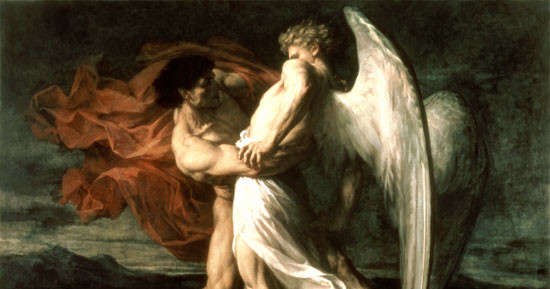“Why I Stay” Essay and Podcast Episodes
This year (2020) I was invited to share my thoughts in Sunstone's "Why I Stay" plenary session for their co...
“there wrestled a man with Jacob until the breaking of the day.” (Genesis 32:24)

I participated in a Mormon Matters discussion on the wrestle between obedience and conscience with Mormon Matters host Dan Wotherspoon (Ph.D. in Philosophy of Religion from Claremont Graduate University), Jana Riess (Ph.D. in American religious history from Columbia University), and Eric D. Huntsman (professor of Ancient Near Eastern Studies at BYU). It was a pleasure to discuss with them the challenges and opportunities we have to engage in this wrestle as we seek to follow the spirit while also engaging in the church.
There was a lot of ground covered, but I wanted to include two quotes I shared during the discussion.
This first one is from the Latter-day Saint Millennial Star (vol 14, num 38, pgs 593-595, 11/13/1852) and seeks to answer the vital question “To what extent is obedience to those who hold the Priesthood required?”:
Because of … the apparent imperfections of men on whom God confers authority, the question is sometimes asked,–to what extent is obedience to those who hold the Priesthood required? This is a very important question, and one which should be understood by all Saints. In attempting to answer this question, we would repeat, in short, what we have already written, that willing obedience to the laws of God, administered by the Priesthood, is indispensable to salvation; but we would further add, that a proper conservative to this power exists for the benefit of all, and none are required to tamely and blindly submit to a man because he has a portion of the Priesthood. We have heard men who hold the Priesthood remark, that they would do any thing they were told to do by those who presided over them, [even] if they knew it was wrong: but such obedience as this is worse than folly to us; it is slavery in the extreme; and the man who would thus willingly degrade himself, should not claim a rank among intelligent beings, until he turns from his folly.
… Others, in the extreme exercise of their almighty (!) authority, have taught that such obedience was necessary, and that no matter what the Saints were told to do by their Presidents, they should do it without asking any questions. When the Elders of Israel will so far indulge in these extreme notions of obedience, as to teach them to the people, it is generally because they have it in their hearts to do wrong themselves, and wish to pave the way to accomplish that wrong…”
The second one is from ”Common Prayer: A Liturgy for Ordinary Radicals” and frames how the challenge to be peacemakers calls us to engage in this wrestle taking a higher path:
Peacemaking doesn’t mean passivity. It is the act of interrupting injustice without mirroring injustice, the act of disarming evil without destroying the evildoer, the act of finding a third way that is neither fight nor flight but the careful, arduous pursuit of reconciliation and justice. It is about a revolution of love that is big enough to set both the oppressed and the oppressors free.
I think if religious adherents and administrators can both find charitable ways that acknowledge the authority one another have, faith today can be strengthened and restored.
